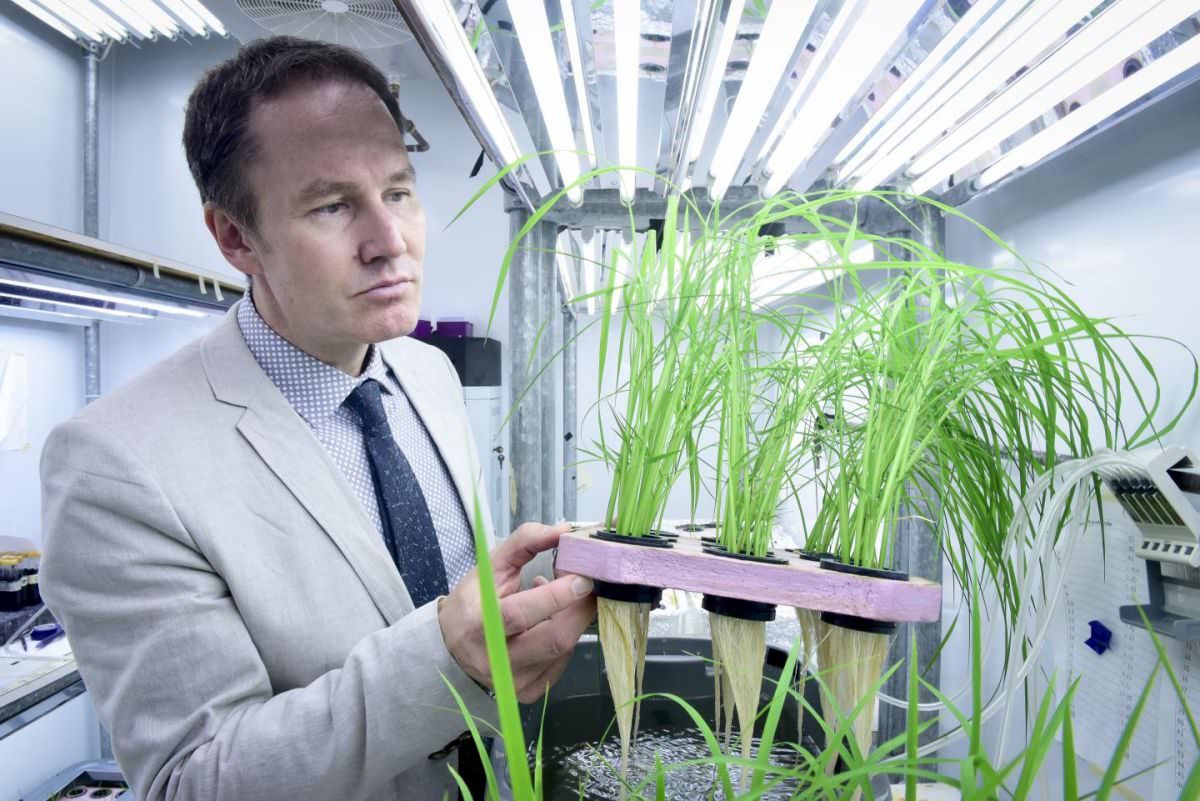On the hunt for a variety of rice that grows without the use of excess, damaging fertilizer.

A new study from the University of Toronto Scarborough could help rice farmers lessen the impact of excess nitrogen, from the ground up.
Plants need nitrogen to grow; it can be found naturally in the soil in small doses, but like everything else in agriculture, to get plants to grow efficiently and quickly, farmers have long boosted the natural ways with hacks, in this case by dumping nitrogen onto their crops in the form of fertilizer. But many plants, including rice – one of the world’s most produced crops – are not especially efficient at taking in nitrogen, forcing the use of higher quantities. “In tropical rice fields, as much as 50 to 70 per cent can be lost,” reads the study’s release.
That’s a huge problem. Nitrogen runoff can pollute streams and rivers, killing any organisms unfortunate enough to be in its way. And while nitrogen fertilizer can be broken down by microbes in the soil, this process isn’t without its problems: studies indicate that the waste product of that microbial digestion, nitrous oxide, is responsible for vast amounts of greenhouse gases.
This new study analyzed 19 popular varieties of rice for something that’s never really been analyzed before: the efficiency with which the variety takes in nitrogen. The study even managed to figure out more precisely how these plants take in nitrogen, which could be of use in, say, genetically modified plants. But as it stands, the team divined several more efficient varieties of rice, which, if used, enable farmers to save money by using less fertilizer, and to protect the environment from the effects of excess fertilizer. The team hopes to work with governments to convince farmers to switch rice varieties to one that’s less wasteful.